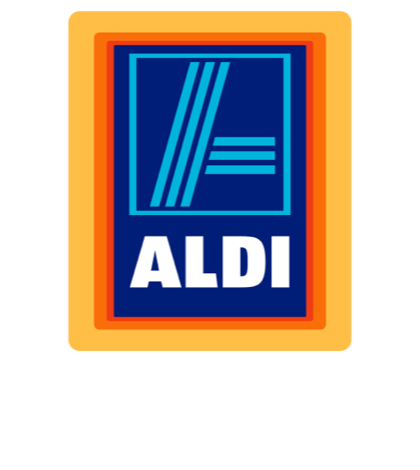The German discount retailer, which already operates 8,000 stores worldwide, is preparing for a major push into California and the western United States. Its plans include a regional headquarters and logistics operation in Moreno Valley.
Aldi, the global discount supermarket chain, is coming to California. The only question is when.
The company, which is based in Germany, announced in December that it plans to open 650 stores in the United States during the next five years. Aldi currently operates about 1,300 stores in the United States, almost all of which are on the East Coast or in the Midwest.
That’s an aggressive expansion that works out to about 130 stores a year. Aldi’s, which opened its first U.S. store in 1976, has added about 80 stores a year in the United States since 2011
Aldi officials also announced that they plan to build a regional headquarters and a warehouse-distribution operation in Moreno Valley, a clear sign that the Inland Empire should get its share of the chain’s new stores once the company makes its move.
But that’s all anyone, outside of a few high-ranking Aldi executives at the company’s U.S. headquarters in Batavia, Ill., are saying about the planned expansion. Company officials announced no launch date, nor did they announce store locations, in California or anywhere else.
When the Inland regional headquarters and logistics operations will be built also remains a secret outside the company, which is owned by the Albrecht family, owners of Trader Joe’s.
Perhaps most significantly, Aldi officials haven’t explained why they’re undertaking a major expansion now, in a shaky economy and so soon after another major retailer from outside the country, Fresh & Easy, declared bankruptcy and all but gave up on the U.S. market.
“We are eager to bring the Aldi difference to new markets like Southern California,” said President Jason Hart in a statement released several days before Christmas, when the expansion was first announced. “We’re ramping up our expansion plans to meet growing demand.”
Internationally, Aldi is divided into two groups, Aldi North and Aldi South. Each operates in specific areas independent of each other, and both are constantly expanding. The company, which operates about 8,000 stores worldwide, reportedly adds one store a week in Britain alone.
Like Fresh & Easy in 2007, Aldi is entering a highly competitive market, one that already has Target, Walmart, Stater Bros. and multiple discount houses all trying to carve out their own niche.
Despite that competition, several people familiar with the state grocery industry say Aldi’s has a good chance of finding a market and surviving in California, although who its closest competitor will be is difficult to say now.
“Aldi is a discount chain, and we’ve had some other discount chains come into California recently that have done well,” said Dave Heylen, spokesman for the California Grocers Association, a trade group in Sacramento. “But it’s still going to be a challenge for them because California is such a competitive market, especially Los Angeles.”
Heylen was referring to Family Dollar, Dollar General and Dollar Tree, all discount stores – but not exclusively grocery stores – that set up shop in Southern California within the past few years and have stayed afloat.
“I wonder about Aldi expanding into the Inland Empire, where the economy is still shaky,” Heylen said. “But California is still a good market for the grocery industry.”
Besides stalwarts like Vons and Stater Bros., grocery stores that perform well in California today generally fall into one of two categories, both specialty niches: ethnic-oriented chains, like Cardenas, or stores that sell organic products, like Sprouts or Whole Foods, Heylen said.
Aldi is neither of those things: its store footprint is smaller, about 15,000 square feet, and it employs six to eight people per store. Both of those numbers are much smaller than a typical supermarket.
Second, its inventory is narrower. Aldi sells basic items that shoppers buy often – milk, bread, eggs, cereal, fruits and vegetables – at heavily discounted prices, said Terrie Ellerbee, associate editor of The Shelby Report, a Georgia-based newsletter that follows the U.S. grocery industry.
“They throw in some specialty items once in awhile, like garden furniture or barbecue grills during the summer, but that’s about it,” Ellerbie said. “They stick with the basics and they’ve been very successful. It’s an interesting concept, but at bottom they’re about cutting prices.”
Aldi’s approach of slashing prices as much as it can and making up the difference on volume is similar to Walmart’s, whose supercenters have changed the U.S. grocery industry by forcing it to become more focused on pricing. Target, for example, added grocery sections to its stores so it could compete with Walmart supercenters.
Whether Walmart reacts to Aldi entering California remains to be seen, but it’s not likely that the largest retailer in the United States can ignore the move.
“I think Walmart has the most to be concerned about,” Ellerbie said when asked about Aldi’s most likely competitors. “There are some similarities with Trader Joe’s, but I think they could have the most impact on Walmart, because their approach to pricing is so similar.”
Now might be a good time for a discount chain like Aldi to expand into California. Despite an improving economy and a recent uptick in consumer confidence, the state’s unemployment rate is still high, at 8.3 percent, and some people aren’t confident about their long-term job prospects.
“Some people are still down on the economy and they’re still watching their pennies,” Ellerbie said. “If you offer those people a discount they’ll probably go for it.”
Fresh & Easy’s experience in the U.S. market can serve as a cautionary tale for Aldi or any specialty retailer that wants to do business here, said Brad Umansky, president of Progressive Real Estate Partners in Rancho Cucamonga.
“They were very arrogant,” Umansky said of Fresh & Easy, which is owned and operated by Tesco, the British retail giant sometimes called the Walmart of the United Kingdom. “They’re attitude was ‘we have the U.S. market figured out and we know what you want,’ but it turned out we didn’t want it. They didn’t understand our demographic.”
 IE Business Daily Business news for the Inland Empire.
IE Business Daily Business news for the Inland Empire.


